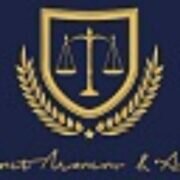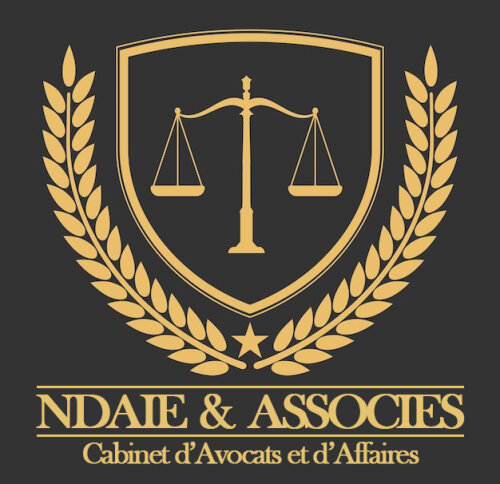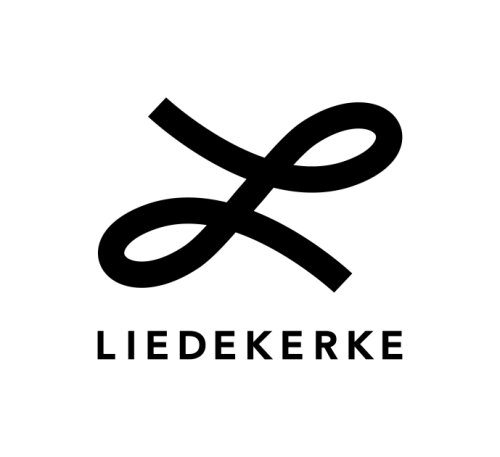Best Debt Capital Markets Lawyers in DR Congo
Share your needs with us, get contacted by law firms.
Free. Takes 2 min.
Or refine your search by selecting a city:
List of the best lawyers in DR Congo
About Debt Capital Markets Law in DR Congo
Debt Capital Markets (DCM) refer to the platforms and legal frameworks that govern the issuance, trading, and regulation of debt instruments such as bonds, notes, and other fixed-income securities. In the Democratic Republic of the Congo (DR Congo), the debt capital market is gradually developing, presenting both opportunities and challenges for issuers and investors. Companies, banks, and even public sector entities tap into these markets to raise long-term funds by borrowing from investors in exchange for periodic interest payments and repayment of principal at maturity. The legal environment is evolving, influenced by local regulations, regional initiatives, and global standards.
Why You May Need a Lawyer
Interacting with the Debt Capital Markets in DR Congo can be complex due to the intricate legal, regulatory, and financial considerations involved. Common situations where you may require legal assistance include:
- Structuring and issuing corporate or sovereign bonds
- Navigating the approval process with regulatory authorities
- Drafting and negotiating debt instruments, prospectuses, and contracts
- Ensuring compliance with local and international standards
- Advising on tax implications related to debt issuance
- Resolving disputes related to issuance, trading, or default
- Providing due diligence services for both issuers and investors
- Advising on cross-border transactions and compliance requirements
A lawyer's expertise ensures your activities in debt capital markets comply with applicable laws and mitigate risks of legal or financial penalties.
Local Laws Overview
Debt Capital Markets activities in DR Congo are shaped by a combination of national legislation and regional financial regulations driven by the Central African Financial Market (CMF) and the Central Bank of Congo (BCC). Some key legal frameworks include:
- Law on the Organization and Supervision of Financial Markets: This law sets out requirements for the creation, issuance, and trading of securities, including debt instruments.
- Central Bank of Congo (BCC) Regulations: The BCC oversees aspects such as licensing, disclosure obligations, and market supervision for debt securities.
- Regional Integration: DR Congo is a member of CEMAC, influencing certain harmonized financial market rules, although domestic regulations still apply.
- Tax Laws: Tax benefits and obligations related to interest, capital gains, and the issuance process are governed by the General Tax Code and specific fiscal measures on financial products.
- Disclosure and Reporting: Issuers must provide regular information for investor protection, including audited financial statements and prospectuses, as stipulated by local law.
Understanding these legal components is essential before undertaking any significant debt capital market activity in DR Congo.
Frequently Asked Questions
What types of debt instruments can be issued in DR Congo?
Issuers can offer various debt instruments such as sovereign and municipal bonds, corporate bonds, promissory notes, and other securities, subject to local regulatory approval.
Who regulates the debt capital markets in DR Congo?
The Central Bank of Congo is primarily responsible for supervising and regulating the financial market, including the issuance and management of debt securities.
Can foreign investors participate in DR Congo's debt capital markets?
Yes, subject to compliance with local and foreign exchange regulations, foreign investors can purchase and hold Congolese debt securities.
What are the main steps to issue a bond in DR Congo?
The process generally includes board approval, preparation of legal documents, submission to regulatory authorities, public disclosure, obtaining regulatory approval, and then offering the bonds to investors.
Are there tax incentives for issuing bonds in DR Congo?
Certain tax advantages may be available, particularly for publicly issued debt instruments, but these are subject to periodic changes and should be reviewed with legal counsel.
What disclosures are required for issuers?
Issuers must provide detailed financial statements, a prospectus outlining the issue's terms, risk factors, and other relevant information to ensure transparency and investor protection.
What happens if an issuer defaults on a debt instrument?
Legal remedies may include restructuring, court proceedings, or enforcement actions under the applicable contracts and laws. Early legal consultation is advisable in such cases.
How are disputes in debt capital markets resolved?
Disputes can be settled through negotiation, mediation, arbitration, or litigation in local courts, depending on the terms of the agreement and applicable laws.
Is it mandatory to have a credit rating for issuing debt securities?
While not always mandatory, obtaining a credit rating enhances the marketability of the instrument and investor confidence. Certain regulatory requirements may apply for specific types of issues.
What is the role of a trustee in debt securities?
A trustee may be appointed to represent and protect the interests of debt holders, oversee payments, and act in cases of default or other significant events as specified in the trust deed.
Additional Resources
When seeking more information or official guidance on debt capital markets in DR Congo, consider contacting or consulting:
- Central Bank of Congo (BCC) - the primary regulator for financial market activities
- Ministry of Finance - for fiscal policies and government bond programs
- Local Chambers of Commerce and Industry - for networking and support
- Regional financial organizations such as CEMAC
- Professional associations for lawyers and accountants specializing in capital markets
- Academic institutions and universities conducting research on financial law in DR Congo
Next Steps
If you need legal assistance in DR Congo's debt capital markets, your next steps should include:
- Identify your specific needs such as bond issuance, investment, or dispute resolution
- Compile all relevant documentation (contracts, financial statements, regulatory filings)
- Research and contact reputable law firms or qualified lawyers experienced in financial and capital markets law
- Schedule a consultation to discuss your objectives, questions, and concerns
- Seek continuous legal advice throughout the process to ensure compliance and manage emerging risks
Proactive engagement with legal counsel can make a significant difference in the successful execution of any debt capital markets transaction in DR Congo.
Lawzana helps you find the best lawyers and law firms in DR Congo through a curated and pre-screened list of qualified legal professionals. Our platform offers rankings and detailed profiles of attorneys and law firms, allowing you to compare based on practice areas, including Debt Capital Markets, experience, and client feedback.
Each profile includes a description of the firm's areas of practice, client reviews, team members and partners, year of establishment, spoken languages, office locations, contact information, social media presence, and any published articles or resources. Most firms on our platform speak English and are experienced in both local and international legal matters.
Get a quote from top-rated law firms in DR Congo — quickly, securely, and without unnecessary hassle.
Disclaimer:
The information provided on this page is for general informational purposes only and does not constitute legal advice. While we strive to ensure the accuracy and relevance of the content, legal information may change over time, and interpretations of the law can vary. You should always consult with a qualified legal professional for advice specific to your situation.
We disclaim all liability for actions taken or not taken based on the content of this page. If you believe any information is incorrect or outdated, please contact us, and we will review and update it where appropriate.
Browse debt capital markets law firms by city in DR Congo
Refine your search by selecting a city.

















